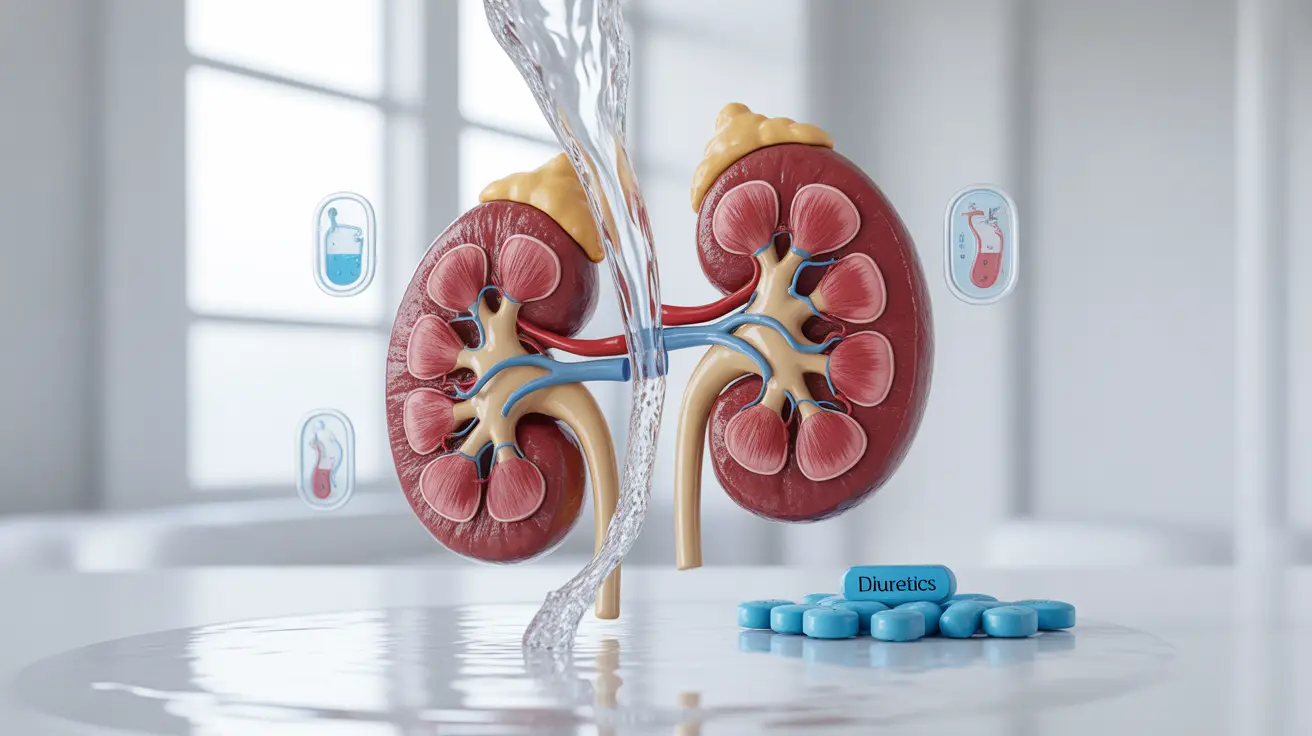Many people take water pills (diuretics) to manage conditions like high blood pressure, heart failure, or fluid retention. However, there's growing concern about how these medications might affect kidney health. Understanding the relationship between water pills and kidney function is crucial for anyone prescribed these medications.
This comprehensive guide explores the potential impacts of diuretics on kidney health, safety considerations, and how to use these medications appropriately to protect your kidneys while managing your health conditions.
How Water Pills Work and Their Effect on Kidneys
Water pills work by encouraging your kidneys to remove excess fluid and salt from your body through increased urination. While this mechanism is beneficial for many conditions, it can potentially impact kidney function in several ways:
- Increased workload on the kidneys
- Changes in fluid and electrolyte balance
- Potential strain on kidney filtering systems
- Alterations in blood flow to the kidneys
Potential Risks to Kidney Health
While diuretics are generally safe when used as prescribed, certain risks to kidney health should be considered:
Dehydration Risk
The primary concern with water pills is the potential for dehydration, which can stress the kidneys. Signs of dehydration include:
- Excessive thirst
- Dark urine
- Dizziness
- Decreased urination
- Dry mouth and lips
Electrolyte Imbalances
Diuretics can affect important mineral balances in your body, particularly:
- Potassium levels
- Sodium balance
- Magnesium concentration
- Calcium levels
Safe Usage Guidelines for Kidney Protection
To minimize risks while taking water pills, consider these essential guidelines:
Proper Dosing and Timing
Take water pills exactly as prescribed, typically in the morning to avoid nighttime bathroom trips. Never adjust your dosage without consulting your healthcare provider.
Monitoring and Regular Check-ups
Regular monitoring is crucial when taking diuretics:
- Regular blood pressure checks
- Kidney function tests
- Electrolyte level monitoring
- Periodic medical reviews
Special Considerations for Existing Kidney Conditions
People with kidney disease require extra attention when taking diuretics. Your healthcare provider will carefully balance the benefits and risks, potentially adjusting dosages or choosing specific types of diuretics that are safer for compromised kidney function.
Frequently Asked Questions
Are water pills (diuretics) harmful to kidney function?
Water pills aren't inherently harmful to kidney function when used properly under medical supervision. However, they can pose risks if not taken correctly or if used inappropriately without proper monitoring.
How do water pills affect kidneys in people with existing kidney disease?
In people with kidney disease, water pills must be used with extra caution. The type and dosage of diuretics may need to be adjusted, and closer monitoring of kidney function and electrolyte levels is essential.
What are the risks of dehydration and kidney injury from taking diuretics?
The main risks include excessive fluid loss leading to dehydration, electrolyte imbalances, and potential acute kidney injury if severe dehydration occurs. Proper hydration and regular monitoring can help prevent these complications.
How should diuretics be used safely to protect kidney health?
Safe use involves taking medications as prescribed, maintaining proper hydration, regular medical monitoring, and promptly reporting any concerning symptoms to your healthcare provider.
Can diuretics help manage high blood pressure without damaging the kidneys?
Yes, when properly prescribed and monitored, diuretics can effectively manage high blood pressure while maintaining kidney health. The key is appropriate dosing, regular monitoring, and maintaining good hydration practices.
Remember to always consult with your healthcare provider before making any changes to your diuretic medication regimen, as proper medical supervision is essential for protecting your kidney health while managing your condition effectively.




